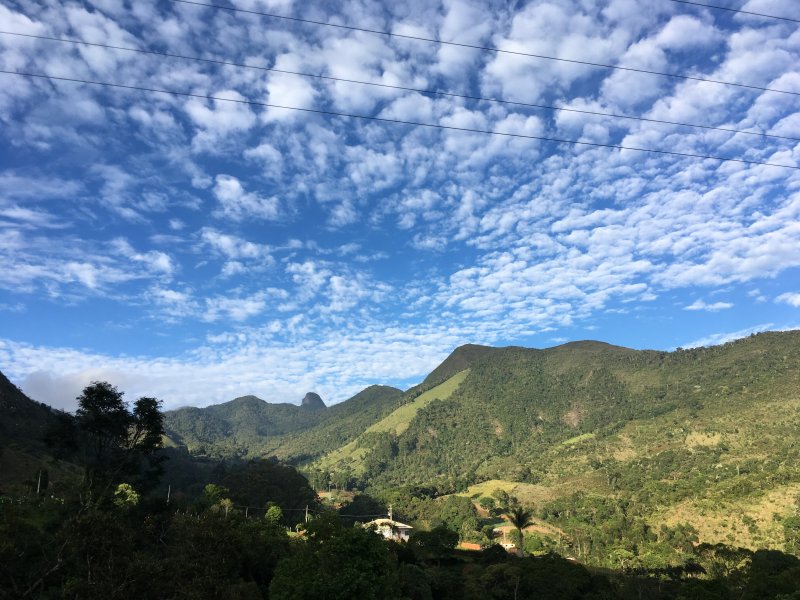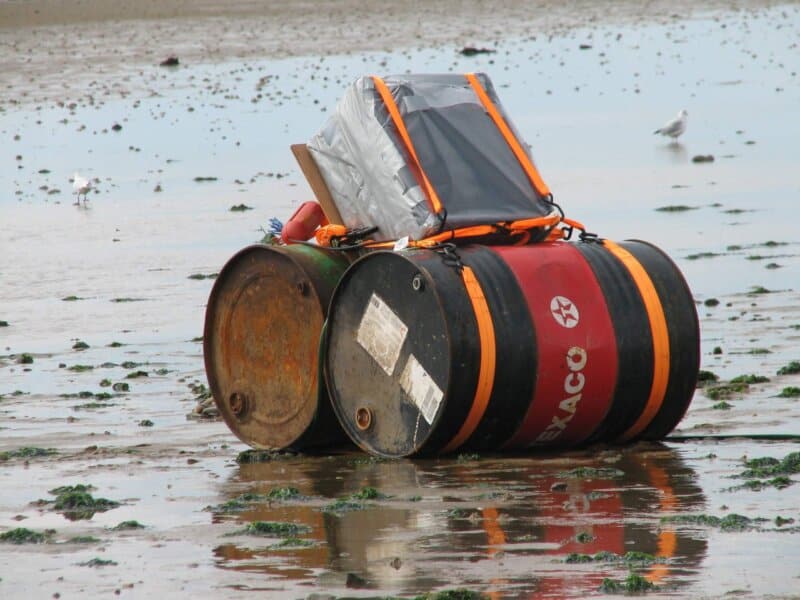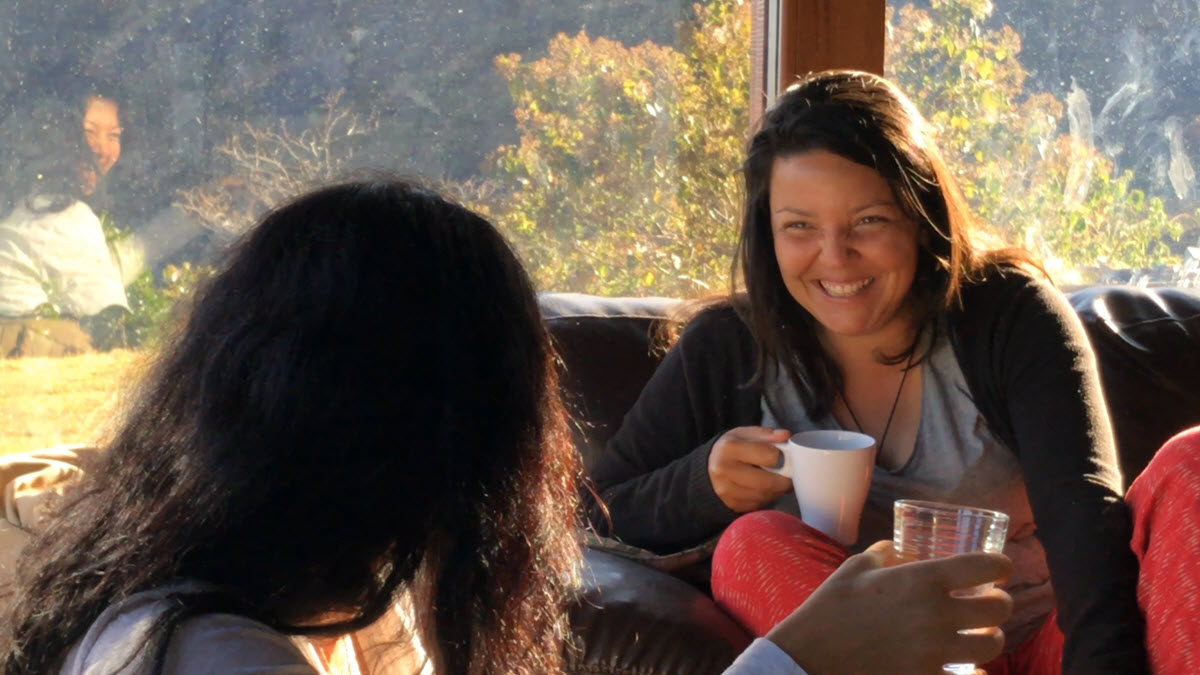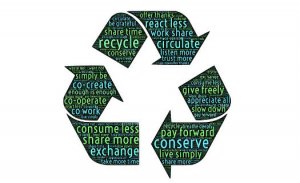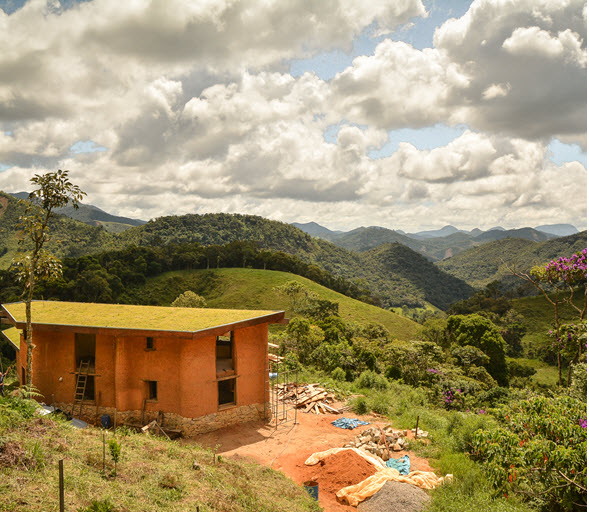Quando você chega em Nova Friburgo, no estado do Rio de Janeiro, e você pergunta para as pessoas como chegar ao bairro rural de Cardinot, eles respondem: “Cardinot? É meio longe, você tem que pegar um ônibus para chegar lá, mas você não sabe quando ele chega ou quanto tempo ele vai levar para fazê-lo.” Outros irão dizer que é um local muito isolado.
Em português a origem da palavra “ïsolado” é relacionada à “ilha”. Bem, se pensamos em uma ilha como sendo capaz de fornecer comida e energia e não sendo auto-destrutiva, nós podemos dizer que o que estamos tentando criar em Cardinot é uma ilha. E sem um mar em volta dela, não existe ilha: sem a interação com a vizinhança e outras comunidades nós não estaríamos preenchendo uma parte dos nossos objetivos, que são o desenvolvimento social, a troca de conhecimentos, experiências, e sorrisos.
Aqui na Eco Caminhos, aquela ilha nas montanhas, nós estamos abrindo o caminho que vai nos levar na direção daqueles sonhos dia após dia. Nós temos o desafio de lidar com a nossa própria micro-comunidade, com as diferenças culturais e comportamentais nela, entendendo que o projeto só pode avançar se nós vermos cada possível conflito de forma positiva e se buscarmos por uma mudança interior em vez de modificar o outro.
Essa é uma das motivações de se estar trabalhando em um projeto que nós mesmos escolhemos. Se eu estou me sentindo desconfortável com a quantidade de toxinas e de hormônios sintéticos que eu como por ano, se o meu trabalho não contribui para a sociedade do modo que eu gostaria e consume muitas horas da minha vida, me deixando sem tempo para os meus sonhos e me forçando a consumir produtos e serviços pré-fabricados porque eu tenho que tentar compensar por todo o tempo perdido que eu não pude dedicar a mim mesmo, então porque não tentar em vez disso simplesmente mudar a mim mesmo ?
Qual é o projeto que eu quero ajudar a crescer ? Essa é uma das questões que todo mundo pergunta frequentemente aqui. A idéia da Eco Caminhos é oferecer às pessoas a oportunidade de desenvolver os projetos e as idéias que eles gostam, de oferecer experiências para a comunidade e ao mesmo tempo dar à elas a oportunidade de suprir suas próprias necessidades, energeticamente, em termos de comida, ou economicamente, e sempre mantendo o equilíbrio com quem proporciona tudo isso para nós: o planeta Terra. Existe muito trabalho para ser feito por aqui, e a coisa mais importante é que o que você faz e produz esteja alinhado como que você acredita, e isso é belo!
Aqui nós usamos muita energia física e isso nos reconecta com a terra; isso pode nos levar a descobrir dores de músculos esquecidos e nos convida a olhar para as coisas que fazemos com cuidado e atenção. Uma vez eu estava perguntando sobre como aprumar uma parede de cob (cob é uma mistura de areia, argila, água e palha) e eu fui ensinado que nós deveríamos deixar isso direito, mas ao mesmo tempo deixar isso macio e com formas leves. Um dos voluntários aqui, Roger, disse no final da lição com o seu português ainda em desenvolvimento “Eu gosto de fazer isso ! De trabalhar para que as coisas fiquem bonitas.”
Mais tarde nós falaremos mais sobre as pessoas, os próximos projetos e o conhecimento e experiências aqui na nossa vida cotidiana: compartilhar é cuidar, compartir es cuidar, partager est proteger, delen is weten
